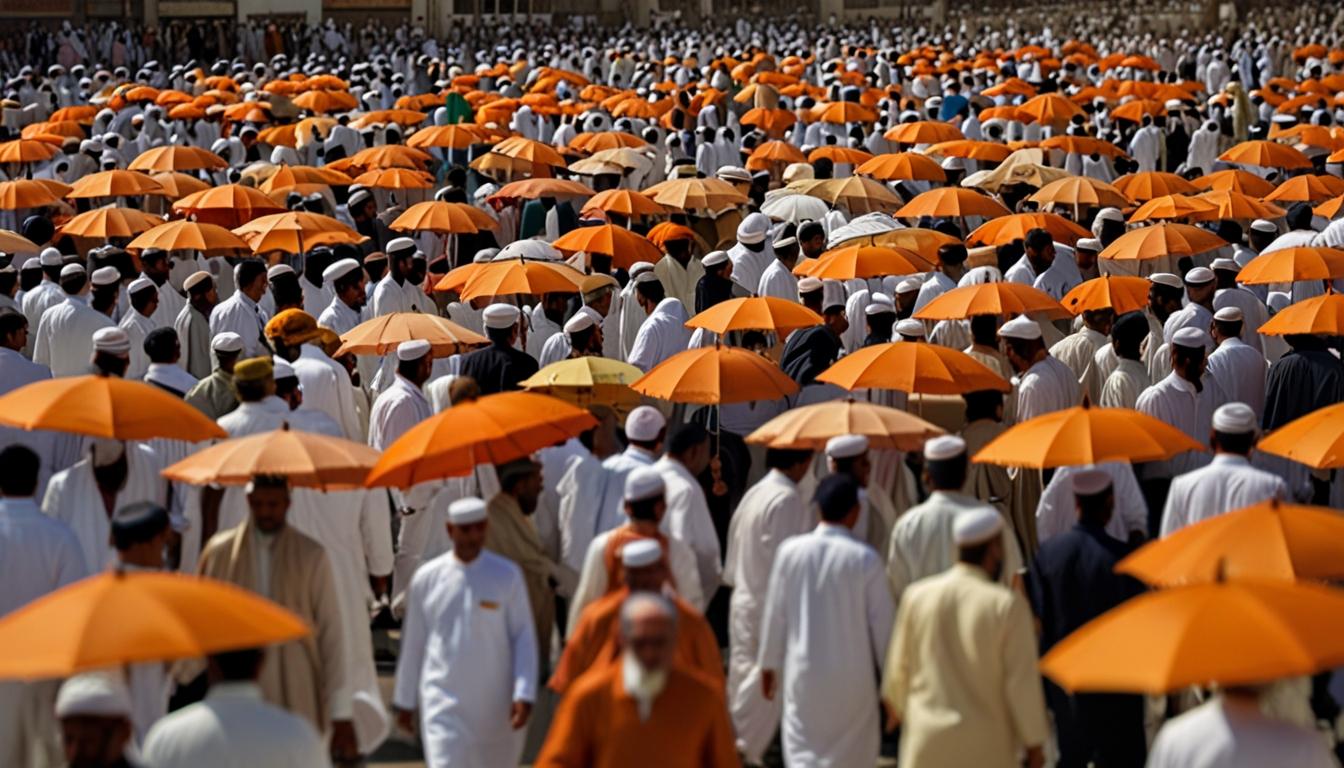Extreme heat during the annual Hajj pilgrimage in Mecca, Saudi Arabia, has led to the deaths of nearly 500 pilgrims, with concerns that the toll may rise. The scorching temperatures of up to 49 degrees Celsius posed severe risks for the 1.8 million participants, resulting in cases of heatstroke and related conditions.
During the annual Hajj pilgrimage to Mecca, Saudi Arabia, extreme heat resulted in the deaths of nearly 500 pilgrims as of June 15, 2024, with some sources suggesting the toll could be higher. Temperatures reached up to 49 degrees Celsius (120 degrees Fahrenheit), posing severe risks to the participating 1.8 million Muslims.
Multiple nationalities were affected: 600 Egyptians, 165 Indonesians, 98 Indians, 68 Jordanians, 35 Pakistanis, 35 Tunisians, and 14 Malaysians, among others. Many pilgrims suffered from heatstroke and related conditions, and thousands received treatment.
Saudi health services set up cooling stations and urged the use of umbrellas and hydration. The pilgrimage also saw the tragic disappearance of some pilgrims, such as Hoda Nagib from Egypt, further compounding the crisis.
Despite safety measures, unregistered pilgrims, lacking access to official amenities, were markedly vulnerable. The Hajj, a cornerstone of Islam and a significant event for Saudi Arabia, faced challenges due to the extreme weather and organizational constraints.
